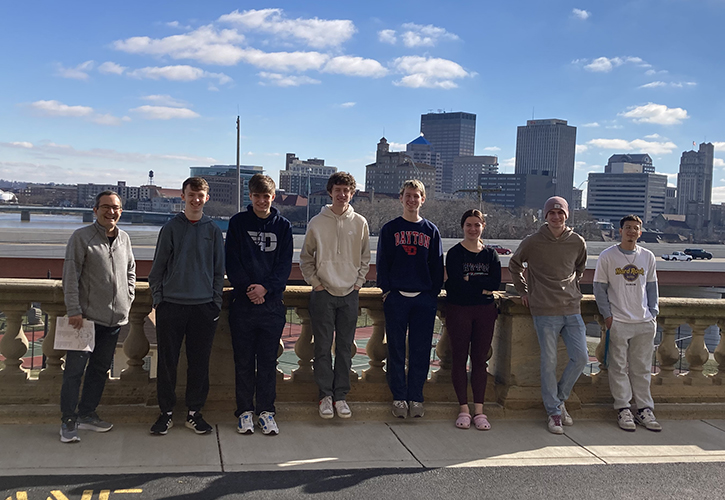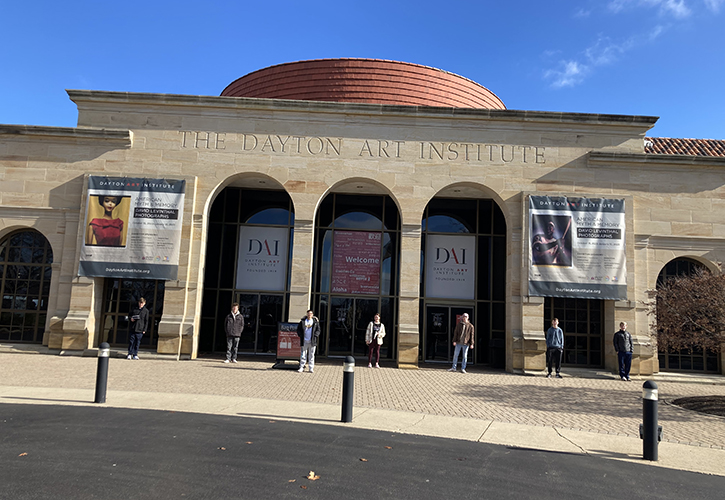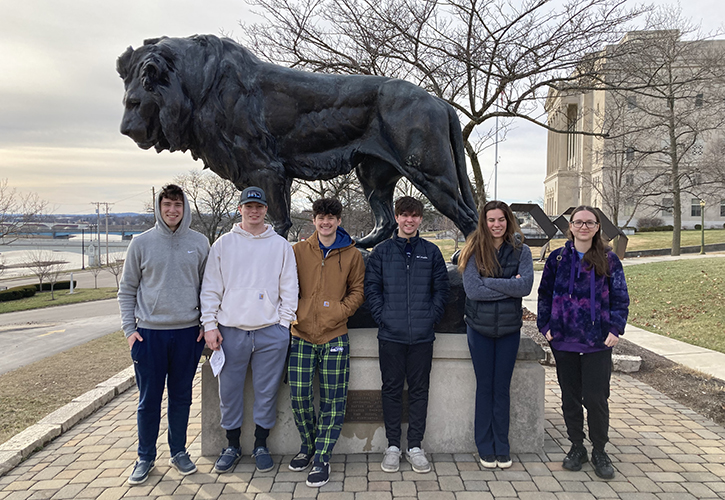Integrated Learning-Living Communities

Business Ethics and Environmental Sustainability: BEES tour 'American Myth and Memory' exhibit at Dayton Art Institute
A little warm weather, and honeybees emerge to do a bit of scouting.
Certain human BEES used a warm break in January’s bitter temperatures to visit the Dayton Art Institute with guest guide Henry Willmore. Michael Kondritz, Thomas Skiba, Katch Danahy, Calvin Laurenson, Katie Bryant, Zach McClain, Martin Silva, Ryan Werner, Collin Hanrahan, Nick Dodds, Eloise Harris and Kasey Crawford made the trip.
The sweet attraction was David Levinthal's 'constructed' polaroid photographs (often deploying dioramas and dolls) intended to challenge the authenticity of three American cultural touchstones: baseball, Barbies and the Wild West.
The exhibit — American Myth and Memory — revealed the fallibility of collective memory, and by extension, the harm that ensues when people’s misguided beliefs in the fairness of a system preclude them from changing the rules of the game.
Specifically, in their economics classes, the BEES have discovered the difficulty of effecting good anti-trust policies when people believe the economic landscape is competitive, when a more accurate depiction is that monopolies dominate many major industries and market power is quite concentrated in several sectors.

In the same way, our collective memory of the “Wild West’ — dominated by images of lone trappers/cowboys/gunmen — rarely cooperating with other — belies the concerted collective effort involved in displacing Native peoples from territory coveted by American farmers or ranchers.
Myths have also prevented other Americans — women and African Americans — from enjoying full economic and political access.
With respect to the iconic doll — Barbie — studies have revealed that the original Barbie was so svelte — and anatomically incorrect — that an actual woman sporting those measurements could neither walk erect nor bear children safely.
Myths also distort our impression baseball, or “American’s game." Many believe it originated in rural fields; in fact, it was innovated in urban areas. And its field was far from level; For many of its first 100 years, baseball excluded African-American players.
After the DAI tour, the BEES honed in on the original Old Scratch pizza location: to eat Angry Beekeeper pizzas and appreciate the more competitive landscape that is the Dayton pizza scene.
This field trip is the container for subsequent BEES experiences: viewing several films that both perpetrate and bust myths: Pleasantville, Silverado, Kindred, The Corporation and episodes of Ken Burns’ documentary on the history of baseball. The series will culminate in a BEES excursion to the spring opening game of the Dayton Dragons in April.

